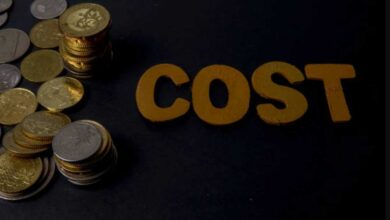
You are not alone if you have ever wondered how an order matching system works. This is a complex process that can be difficult to understand. In this blog post, we will break down the basics of how an order matching engine works and explain some of its terminologies. We will also discuss some of the benefits of using an order matching system.
You should have a better idea of how this process works and why it is crucial for businesses by the conclusion of this piece.
How Does a Crypto Order Matching Engine Work? And What Is It?
A computer software that helps match cryptocurrency buyers and sellers is known as a crypto matching engine. This is achieved by taking into consideration the prices each party is prepared to accept or pay as well as the sums of money they are ready to exchange.
The algorithm then matches orders that provide the best offers for all parties concerned. The trade is carried out and the currencies are exchanged between the two parties once a match has been made.
There are several order matching systems in use today, each with its own advantages and disadvantages. While some systems place a premium on speed, others can put security or liquidity first. In the end, each exchange must determine which system best meets its needs.
Why Employ a Matching Engine for Orders?
An order matching engine may be useful for a variety of reasons. To obtain the greatest deal on your transaction is one motive.
Avoiding the danger of counterparty default is another argument. There is always a chance that the other party won’t carry out their end of the contract when you get into a transaction with them. If you employ an order matching engine, the exchange will take on the role of a third party and ensure that the terms of the deal are satisfied on both sides.
Last but not least, a matching engine can support speedy and effective transaction execution. It is essential to get your trades done as quickly as possible in a market that is moving swiftly. Otherwise, you risk passing on a worthwhile chance.
What Negative Effects Can an Order Matching Engine Have?
The use of an order matching engine could have some drawbacks as well. One is that you might need to pay the exchange costs. These costs may reduce your profits over time as they collect.
You might not be able to receive the precise price you desire for your deal, which is another possible drawback. This is because the exchange will match your deal with the best price that is currently available. You can wind yourself selling for less than you had hoped if the market changes in your favor after you make your deal.
Finally, it is critical to keep in mind that human error still exists in matching systems. They can aid in ensuring that your trades are carried out swiftly and effectively, but they cannot totally rule out the risk of mistakes.
What Difficulties Are Currently Faced by Order Matching Engines, and How May These Be Overcome?
The potential of fraud is one of the difficulties that order matching systems now face. Because these algorithms are intended to rapidly and effectively match deals, criminals may occasionally take advantage of them.
Exchanges need to have effective anti-fraud systems in place to deal with this issue. Checks for KYC (know your customer) and AML (anti-money laundering) should be part of these steps. Exchanges may help safeguard themselves from fraudsters and their consumers by implementing these measures.
Market manipulation is an issue that order matching systems must also contend with. This can occur when traders intentionally raise or lower prices using malicious software. This might lead to a great deal of market volatility, which could be bad for investors.
Market exchanges will need to put in place strict anti-market manipulation procedures in order to address this problem. By operating in this way, exchanges can aid in the creation of a more stable market that is less vulnerable to manipulation.
Verdict
Order matching engines provide a variety of benefits and drawbacks. They may also impose fees, although they can assist you in obtaining the highest possible price for your deal. Furthermore, they might not always be able to provide you the precise pricing you’re looking for. In quick-changing markets, they can still be a helpful tool. Although their future is uncertain, they are nevertheless a vital component of the current crypto sector.







